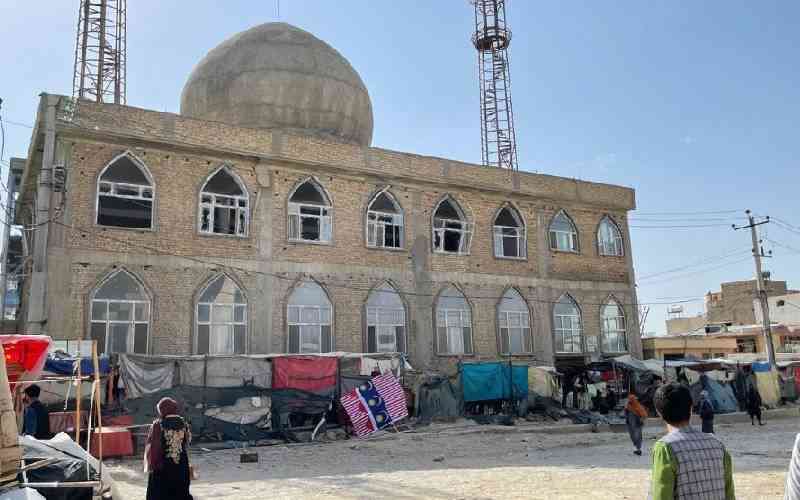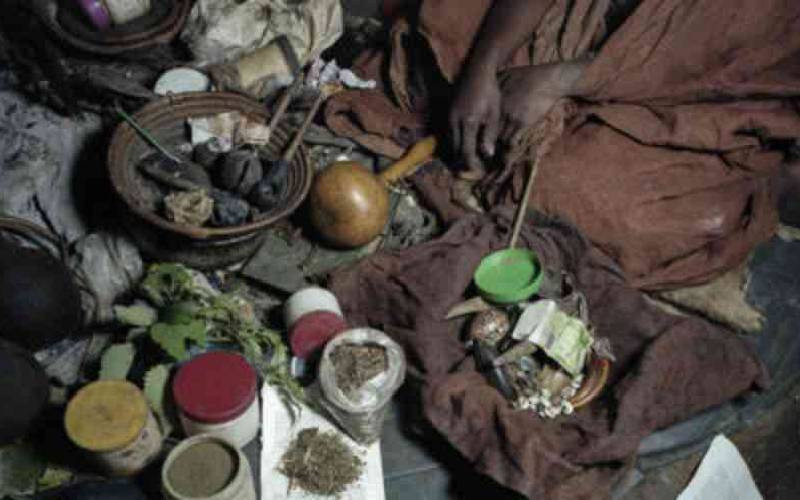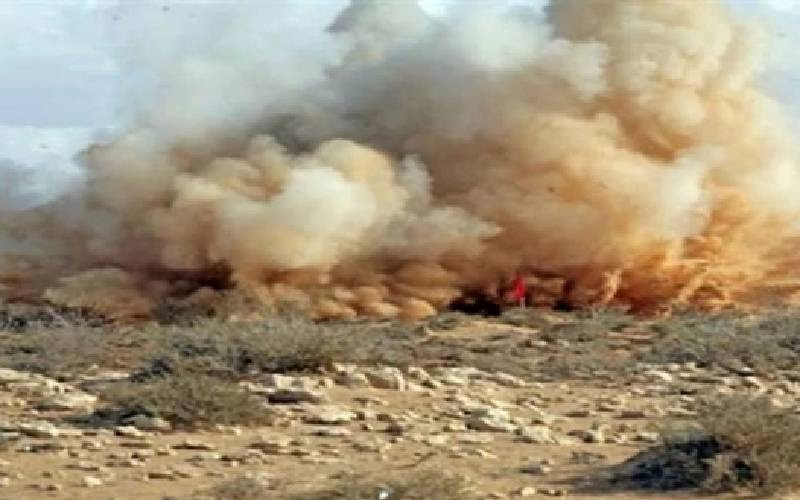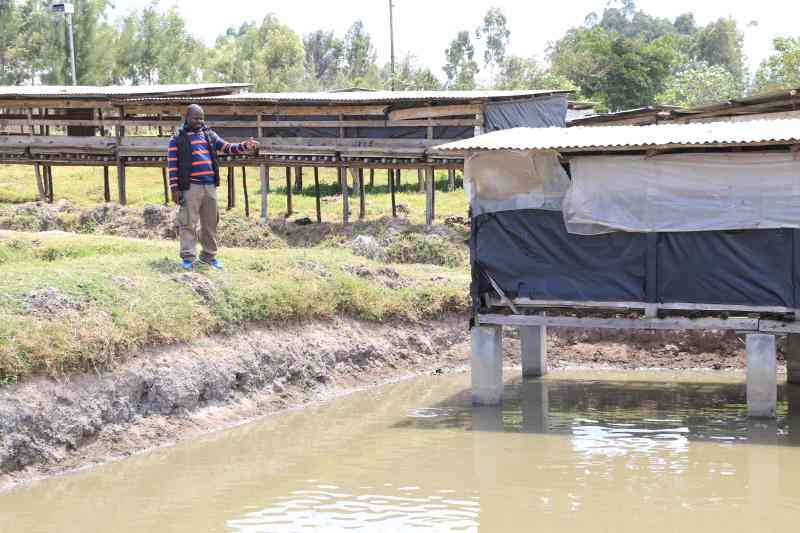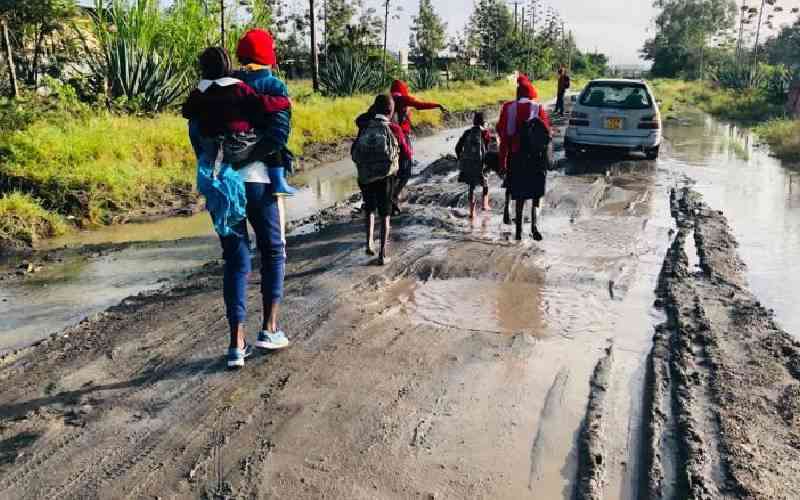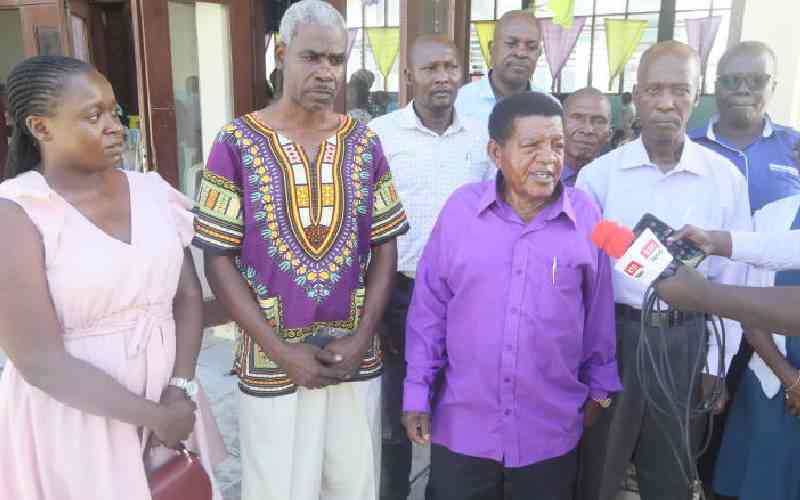For decades, Baringo residents have been entangled in endless turmoil as Pokot militia unleash terror with worrying levels of callousness and impunity. Hundreds of residents have been killed and many maimed with hardly any protection from security forces.
This year was no exception. And if anything, the attacks multiplied, the frequency unprecedented.
Death and destruction visited the villages of Kaborion, Chemoe, Yatya and Kalabata in Baringo North Constituency. Similar attacks have successfully been meted out on the unarmed people of the Iclhamus ethnic minority in Mukutani, Sirata, Arabal and Kiserian in Baringo South.
Apart from ravaging hunger, desperate residents, hundreds of whom sustained permanent bullet scars, were forced to flee their homes as property worth millions of shillings got destroyed.
Sadly, the perennial cases of cattle rustling have mutated into deadly inter-ethnic killings and banditry, often eluding the eye of the Government. On October 30, attackers staged daring raids and ambushes, culminating into the October 30 Kapedo massacre that resulted in the horrendous killing of 19 administration police officers.
The massacre, which jolted President Uhuru Kenyatta to deploy military personnel in war-torn Baringo to disarm bandits in Tiaty, demonstrates how lethal and powerful the Pokot militia have overpowered the country’s security forces. Embattled Baringo Speaker William Kamket, alongside his two Members of the County Assembly, are also facing incitement to murder charges in court following the frequent attacks.
The Pokot militia have since the beginning of the year wreaked havoc in neighbouring communities, in a devastating chronicle whose ugly profile has always dragged the names of Pokot leaders into the murky conflict.
In June, a gang descended on residents of Mukutani Division in Baringo County, killing some local people after a four-hour orgy of gunfire, torture and mayhem. The more than 100 raiders attacked Sirati village, leaving in their wake bloodshed, pain and death.
Tormented residents say the bandits, whose operations were well coordinated, had a macabre way of executing victims. Those who tried to flee were shot and when they fell down in painful spasms, a whistle was blown to symbolise triumph.
Cornered inside his house, together with his wife and six children, all below the age of 17 years, Juma Sadala knew he was the real target together with his animals.
At 6 O’clock, gunfire intensified. He says he heard his 70-year-old father Lopejore Sadala, who had been hiding in a separate house, fall on the ground. The old man tried to plead with the bandits but to no avail.
Determined to accomplish their mission, they started shooting, and within seconds, the grandfather of 20 and owner of 200 sheep and 120 head of cattle, lay lifeless. “They killed my father right at the gate to our animals’ pen,” he recalls.
Sadala was just one of the more than 30 people, all from the minority Ilchamus community inhabiting Baringo South of Baringo County killing in 2014.
Local leaders say more than 50,000 animals have been stolen from the community since the beginning of the year. In July, more than 3,000 residents of Mukutani village along the Ilchamus-Pokot rustling-prone border woke up to deafening gunfire.
After the shooting, the entire Mukutani trading center was billowing in smoke. Bandits had set ablaze buildings and destroyed property. What followed was a mass exodus of terrified civilians who were evacuated by the Kenya Red Cross trucks delivering food in the area. To date, the entire Mukutani village is a ghost settlement. Pokot herders can be spotted grazing their livestock in what used to be their neighbour’s homesteads. Ilchmus were quick to conclude that the attack was a systematic territorial warfare, silently advanced by Pokot politicians.
Stay informed. Subscribe to our newsletter
“It is the Pokot MP Asman Kamama who should answer the riddle that is the numerous attacks and why exactly bandits have come to occupy where our terrified people have migrated from,” said minority rights activist and local politician Amos ole Mpaka.
Fierce criticism
In one early morning raid in October, Pokot raiders launched another daring attack at residents of Kiserian, killing 11 people, all of them men.
They stole 320 animals but police later repulsed them and recovered the livestock. The attack was followed by fierce criticism from a human rights watchdog that pointed an accusing finger at the Government for failing, for decades, to cushion the people of Baringo, who, they noted, bore the worst brunt of Pokot attacks.
At the time, Baringo Human Rights Network chairman Kipruto Kimosop said it was unacceptable that raiders have been left to kill and maim people in the county as authorities fail to take action.
Mtr Kimosop has asked President Kenyatta to take a decisive action against the bandits and swiftly order investigation into the source of arms in the hands of the Pokot community. “It is totally unacceptable to allow one community to kill its neighbours in shameless bloodletting. I plead with the president to take a decisive action on them,” he said. He also pointed fingers at Tiaty MP Asman Kamama, saying he has never condemned the atrocities undertaken by his community openly. In the same month, Pokot raiders killed 21 administration police officers in Kasarani area of Kapedo on the contested Turkana-Baringo border. This came weeks after another three people who were ferrying examination papers to Lokori in Turkana were attacked and killed in the same stretch by raiders.
Earlier in the same week, a police vehicle was ambushed at Chesitet area along Chemolingot- Kapedo Road. Six people lost their lives in the attack, among them, three General Service Unit officers. The police Land Cruiser they were travelling in was burnt.
On December 7, unknown assailants laid ambush and killed a retired Kenya Defence Forces soldier Peter Todokin Kokoon, alongside his son at Kesiela, an abandoned escarpment along the rarely used Mochongoi-Loruk Road.
Kokoon, a renowned military sniper, was killed at a time when there is heavy military presence in Tiaty. The officers were deployed last month after the killing of 21 police officers in Kapedo. The retired officer’s killing has sparked fresh attacks in the border. Two days after the killing, bandits struck Kagir, Loyamorok, Yatya and Chemoe villages, all in Baringo North Sub-county and staged what residents say is retaliatory attacks, even as the year comes to an end.
Two months before the deployment of the military in the area, Baringo Governor Cheboi led a three-day peace caravan across the county in Arabal, Mukutani, Kesiela, Chemoe, parts of Yatya, Kamwetio, Kaborion and Barsuswo viallages. It did not achieve much. Displaced people have sought refuge in Laikipia County, parts of Marigat, Loruk, Mochongoi and other places perceived to be safer. The fate of school-gong children remains unknown. Six primary schools have closed due to surging insecurity. Food and humanitarian crisis are also looming, with leaders calling on the Government to come to the rescue of the suffering pastoral Baringo people. “There is looming hunger in the region, as families have been hurled into “refugee” camps in Chemoe, where there is a GSU camp. I call upon the Government to donate food and beef up security,” says Bartabwa MCA Reuben Chepsongol.
Mutual suspicion
The incidences follow a profile of similar attacks in Samburu County that have seen residents almost severe links with their Pokot neighbours.
In May, three Turkana herders were killed by bandits in Baragoi and 100 cattle stolen from them. This was followed by another attack in which bandits killed a student after a shoot-out at Baragoi Mixed Day Secondary School, days after a boy succumbed to bullet injuries he sustained following an attack at Natiti village in Samburu.
In October, two herders and two raiders we killed in a heated fire exchange between Pokot gunmen and Samburu warriors at Marti village.
And as the rest of the nation gears up to welcome the New Year, Baringo residents face a bleak future.
The mutual suspicion, brewing hatred following frequent counter-attacks, have seen thousands of people flee their homes.
 The Standard Group Plc is a
multi-media organization with investments in media platforms spanning newspaper
print operations, television, radio broadcasting, digital and online services. The
Standard Group is recognized as a leading multi-media house in Kenya with a key
influence in matters of national and international interest.
The Standard Group Plc is a
multi-media organization with investments in media platforms spanning newspaper
print operations, television, radio broadcasting, digital and online services. The
Standard Group is recognized as a leading multi-media house in Kenya with a key
influence in matters of national and international interest.
 The Standard Group Plc is a
multi-media organization with investments in media platforms spanning newspaper
print operations, television, radio broadcasting, digital and online services. The
Standard Group is recognized as a leading multi-media house in Kenya with a key
influence in matters of national and international interest.
The Standard Group Plc is a
multi-media organization with investments in media platforms spanning newspaper
print operations, television, radio broadcasting, digital and online services. The
Standard Group is recognized as a leading multi-media house in Kenya with a key
influence in matters of national and international interest.

